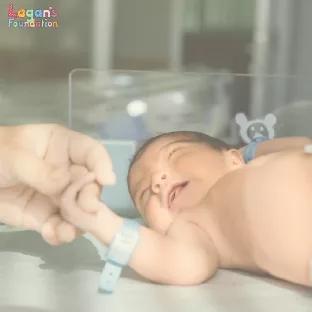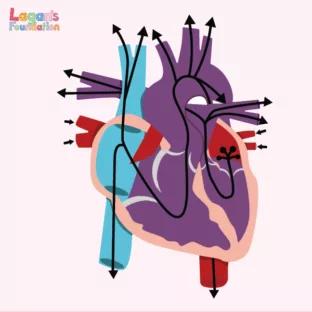Precautions to Take when your Child has an Atrial Septal Defect (ASD)
If your child has an Atrial Septal Defect, there are some precautions you should take to keep their heart as healthy as possible.
Some Atrial Septal Defects are diagnosed at or soon after birth. However, some heart defects are not diagnosed until later in life.
If your child has an ASD, there are some precautions you should take to keep their heart as healthy as possible.

What is an atrial septal defect?
An Atrial Septal Defect (ASD) is a birth defect of the heart in which there is a hole that divides the two upper chambers. ASDs are congenital abnormalities, which means they are present at birth.
Holes can vary in size, and some will close on their own whilst others may need surgery to be closed.
What precautions should you take when your child has an atrial septal defect?
If your child has an Atrial Septal Defect, your healthcare provider will likely recommend some lifestyle steps to keep your child’s heart as healthy as possible and prevent complications.
Exercise
Exercise is usually safe for those with an Atrial Septal Defect. However, if your child requires surgery to close the hole in their heart, it’s a good idea to limit certain activities until the heart defect is fixed. Intense exercise that involves a lot of running may have to be kept to a minimum until your child has their surgery and has recovered.
Extreme changes in altitude
Changes in altitude may cause concern if your child has an unrepaired Atrial Septal Defect. If you’re planning on going on a trip which is slightly higher in altitude than normal, always check with your child’s healthcare provider for advice and guidance.
Dental work
If your child has recently had Atrial Septal Defect surgery and needs dental work too, it’s best to delay the dental procedures for at least 6 months after the hole has been closed.
If your child is experiencing dental pain, they may be provided with preventative antibiotics to take for about 6 months after the hole is closed.
Symptoms of an atrial septal defect to look out for
Although ASD is present at birth, many babies do not show any signs or symptoms. However, signs and symptoms of a large Atrial Septal Defect can include:
- Frequent respiratory infections
- Difficulty breathing
- Shortness of breath when exercising
- Skipped heartbeats
- Swelling of legs, feet and/or stomach area
- Stroke
The most common way an ASD is found is by detecting a murmur. If a murmur is heard or other signs are present, it’s a good idea to get professional medical help.
How can you care for a child with an atrial septal defect?
Most children who have surgery on an Atrial Septal Defect will recover quite quickly, but they will need to have regular follow up visits to a cardiologist. You may notice within a few weeks after surgery that they will be much more active and have a bigger appetite.
For children who are largely affected by an ASD, they are likely to need more care and attention than those who have smaller holes or who have had successful surgery. Some children with ASD’s have complex care needs which can be challenging for parents.
Activities that children usually do, such as playing outside and running around, may have to be limited for those with complex needs. This is because they can become tired very easily and may have extreme shortness of breath. Feeding difficulties may also arise and so this is another daily task which must be monitored.
Respite care for children with heart defects is a great way for parents to have a short break, while a trained carer provides all the care and attention the child needs on a daily basis. This can be hugely beneficial not only for families, but for the child too as it provides change to everyday routines and boosts their mental health.
Are there long term concerns of an atrial septal defect?
Generally speaking, those who have Atrial Septal Defect surgery will go on to live long, healthy lives. However, those who do not have their ASD treated do have a shorter life expectancy of around 50 years, but this is dependent on the size of the hole.
Some children may require constant care for their whole life, whilst others may simply require being monitored every so often by a cardiologist.
If the hole is not closed at a young age, some of the long term concerns of Atrial Septal Defects can include:
- Increased blood flow to the right side of the heart
- Right ventricular weakening
- Swelling of the veins in the neck
- Increased blood flow to the lungs
- Pulmonary congestion
- Increased chest infections
- Blood clots
- Arrhythmia

![Understanding Total Anomalous Pulmonary Venous Return [TAPVR]](/wp-content/uploads/2025/04/Understanding-Total-Anomalous-Pulmonary-Venous-Return-FI-312x312-c-default.jpg)


